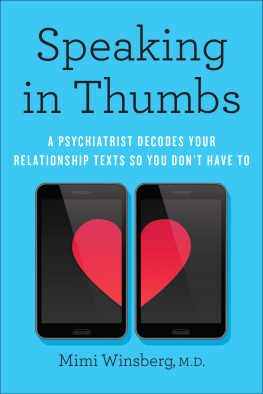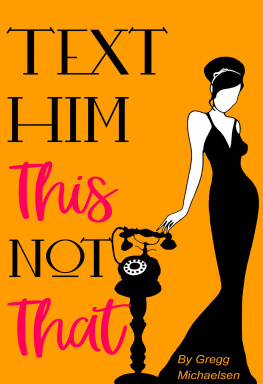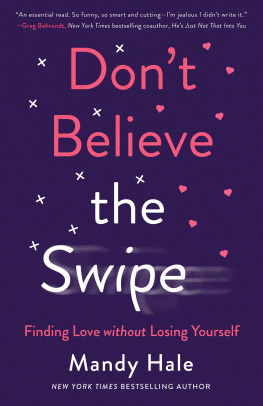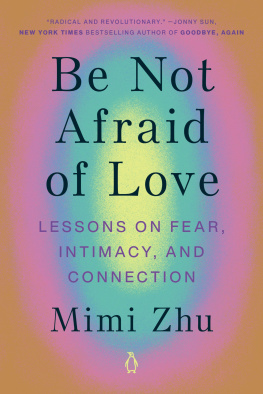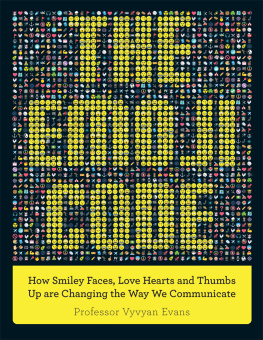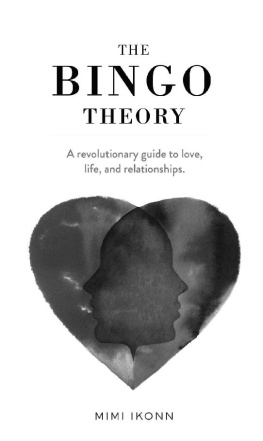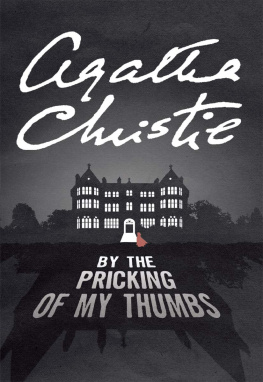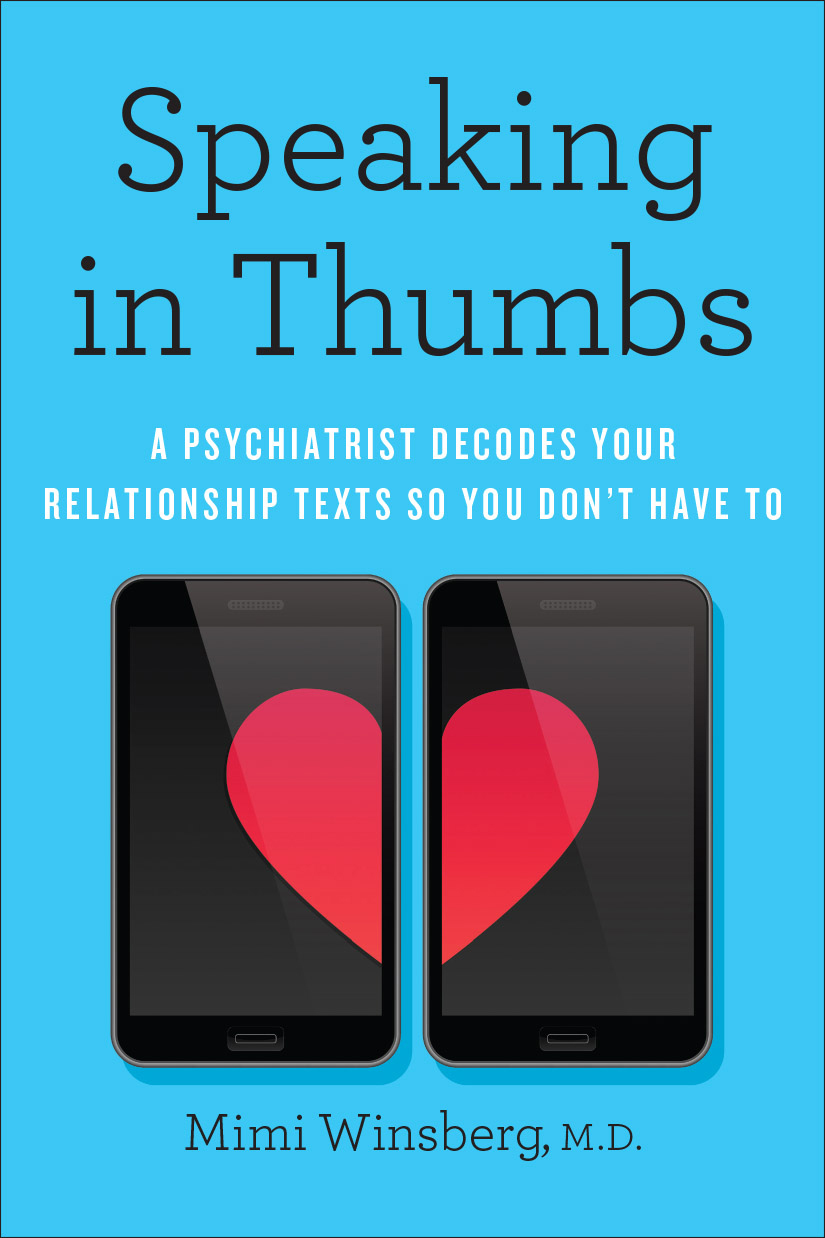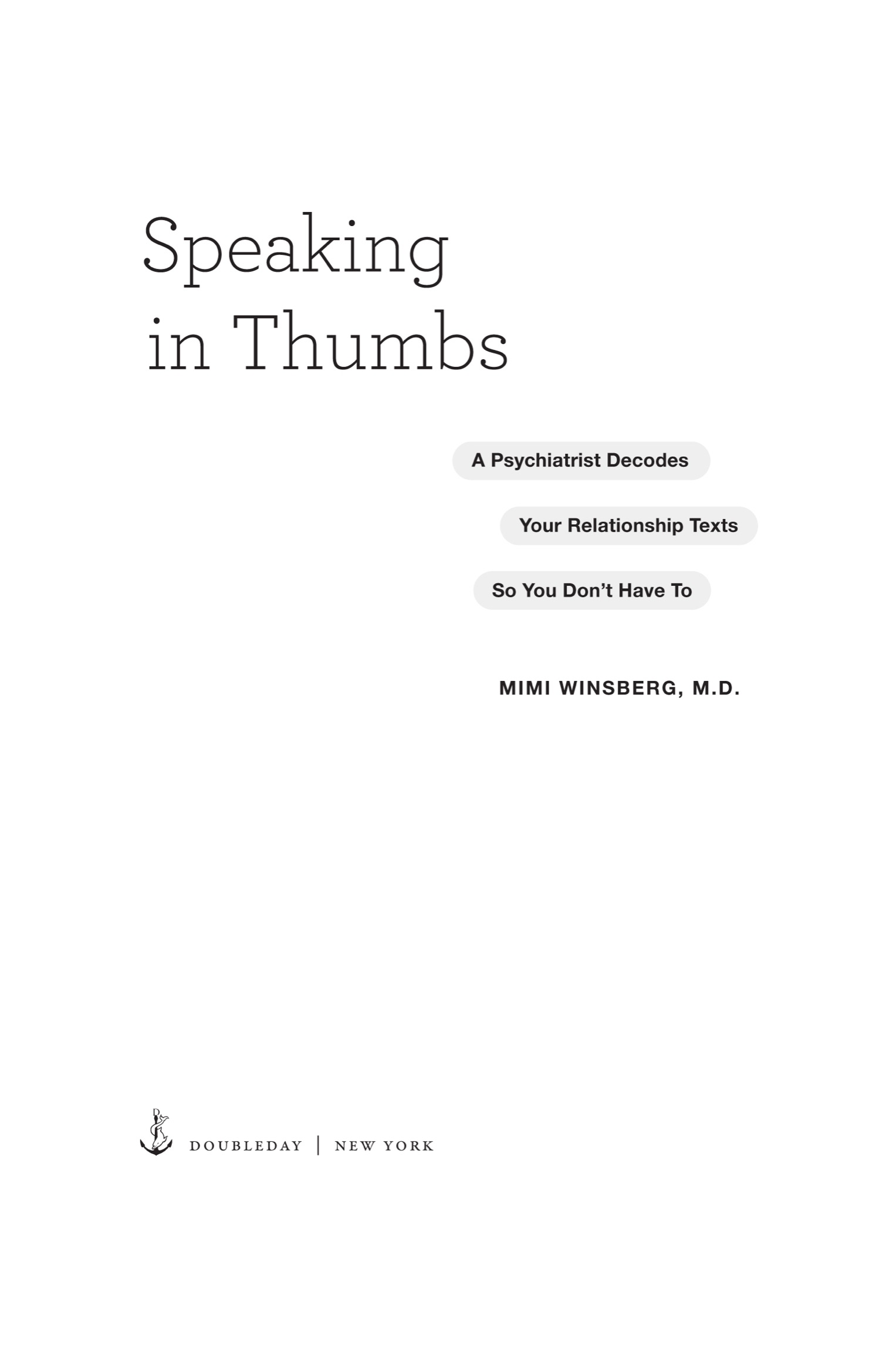Mimi Winsberg - Speaking in Thumbs: A Psychiatrist Decodes Your Relationship Texts So You Dont Have To
Here you can read online Mimi Winsberg - Speaking in Thumbs: A Psychiatrist Decodes Your Relationship Texts So You Dont Have To full text of the book (entire story) in english for free. Download pdf and epub, get meaning, cover and reviews about this ebook. year: 2022, publisher: Knopf Doubleday Publishing Group, genre: Home and family. Description of the work, (preface) as well as reviews are available. Best literature library LitArk.com created for fans of good reading and offers a wide selection of genres:
Romance novel
Science fiction
Adventure
Detective
Science
History
Home and family
Prose
Art
Politics
Computer
Non-fiction
Religion
Business
Children
Humor
Choose a favorite category and find really read worthwhile books. Enjoy immersion in the world of imagination, feel the emotions of the characters or learn something new for yourself, make an fascinating discovery.
- Book:Speaking in Thumbs: A Psychiatrist Decodes Your Relationship Texts So You Dont Have To
- Author:
- Publisher:Knopf Doubleday Publishing Group
- Genre:
- Year:2022
- Rating:5 / 5
- Favourites:Add to favourites
- Your mark:
Speaking in Thumbs: A Psychiatrist Decodes Your Relationship Texts So You Dont Have To: summary, description and annotation
We offer to read an annotation, description, summary or preface (depends on what the author of the book "Speaking in Thumbs: A Psychiatrist Decodes Your Relationship Texts So You Dont Have To" wrote himself). If you haven't found the necessary information about the book — write in the comments, we will try to find it.
When it comes to modern relationships, our thumbs do the talking. We swipe right into a strangers life, flirt inside text bubbles, spill our hearts onto the screen, use emojis to convey desire, frustration, rage. Where once we pored over love letters, now we obsess over response times, or wonder why the three-dot ellipsis came . . . and went.
Nobody knows this better than Dr. Mimi Winsberg. A Harvard- and Stanford-trained psychiatrist, she cofounded a behavioral health startup while serving as resident psychiatrist at Facebook. Her work frequently finds her at the intersection of Big Data and Big Dating. Like all of us, Winsberg has been handed a smartphone accompanied by the urgent plea: What does this mean? Unlike all of us, she knows the answer. She is a text whisperer.
Speaking in Thumbs is a lively and indispensable guide to interpreting our most important medium of communication. Drawing from of-the-moment research and a treasure trove of real-life online dating chats, including her own, Winsberg helps you see past the surface and into the heart of the matter. What are the hallmarks of healthy attachment? How do we recognize deception? How can we draw out that important-but-sensitive piece of informationDo you want kids? Do you use drugs? Are you seeing someone else?without sending a potential partner heading for the hills?
Insightful, timely, and impossible to put down, Speaking in Thumbs is an irresistible guide to the language of love. With wit and compassion, Winsberg empowers you to find and maintain real connection by reading between the lines.
Mimi Winsberg: author's other books
Who wrote Speaking in Thumbs: A Psychiatrist Decodes Your Relationship Texts So You Dont Have To? Find out the surname, the name of the author of the book and a list of all author's works by series.

